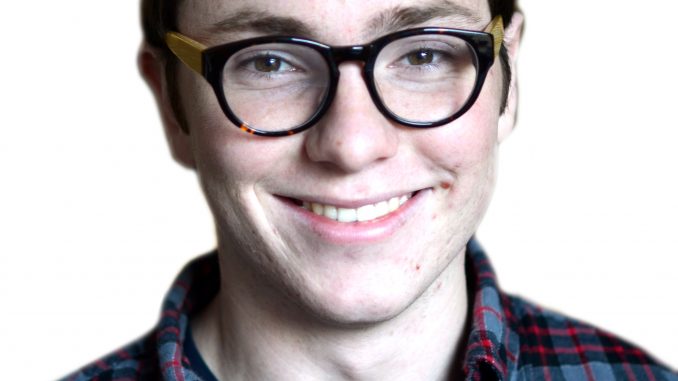
Now that the first day of spring has passed, grab a pair of gloves, a shovel and some seeds – it’s the season for growing greens and networking. It’s time to till some soil and get gardening. There are many benefits to growing your own produce, from health to a better sense of community.
Gardening connects segregated communities like that surrounding Temple. Students and local residents don’t commonly collaborate, but students like Gab Taube from Temple Community Garden and Alex Epstein from Philadelphia Urban Creators and Tree House Books are changing that.
“You can take a piece of land, plant the vegetable seeds and see them grow,” Taube, a senior geography major, said. “Gardening is a great opportunity to get together with your neighbors to see something happen.”
Furthermore, obesity is a national epidemic, as proclaimed by the surgeon general. Growing your own food is the best way to ensure healthy eating. The obesity rate of Philadelphia children, almost 50 percent, is higher than the national average of about 35 percent. The availability of junk food is a primary factor, but gardening can change this on a personal level.
Today, stores mainly provide prepackaged, processed and preservative-filled foods. None of this is healthy or natural. We couldn’t be more disconnected to our produce. Gardening closes those gaps.
Additionally, it’s hard to distinguish where our food comes from. Knowing the origins of our food is an important reason to start gardening. Our food travels on average 1,500 miles before we eat it, according to Michael Pollan’s book, “The Omnivore’s Dilemma.”
That distance doesn’t just negatively impact the quality of what we eat. From seed to stomach, conventional agricultural is dependent on dirty petroleum, from tractors to petro-chemicals and plastic packaging, shipping and more. All this multiplies our ecological footprint.
Just walking down the street to a local community garden would severely lower our environmental footprint. The big red walls of the TCG at Broad and Norris streets might beckon the average student since the garden is close to home, but there are many more gardens throughout Philadelphia. It’s not hard to get involved – even the most apathetic diner can find their green thumb if they find the proper venue to let it flourish. Community gardens awaken the environmentalist in all of us.
First Lady Michelle Obama said gardening is the greenest thing to do. In 2010, she tore up 1,100 square feet of White House grounds for her organic garden. Her hero and a gardening pioneer Eleanor Roosevelt was the first to plant a Victorian garden at the White House, drawing much popularity to that way of living.
On the business side, Franklin D. Roosevelt was a strong proponent of breaking up monopolies. Today, however, many food markets are run by oligopolies – controlled by a small group of large corporations. According to the documentary “Food Inc.,” just four beef packing companies control 80 percent of the industry.
Take that money typically going to massive conglomerates and put it into your pockets by planting produce. The seed company Burpee found that $50 worth of seeds produces the equivalent of $1,000 in store-bought food.
Some Temple students are already digging in the dirt, as local gardening is in full swing for spring. Many come to TCG meetings every Thursday. Some have never held a shovel, while others have naturally green thumbs, but all have two things in common – plants and community.
TCG goes above and beyond typical community gardens that are popping up everywhere. First, several students volunteer their time gardening with the homeless. Each Friday, and for the first time since last semester, TCG members teach, talk to and learn from the folks at Kairos House on Broad Street.
The Penrose afterschool program helps kids relieve stress from school and home. It’s important to teach youth self-sufficiency. The kids get a lot from the program, but Temple students said they get just as much from the children.
“Gardening with the Penrose kids is fun because they are so curious and love to learn about things they eat,” Taube said. “Gardening with Kairos House is fun, too. It’s chill participating with our neighbors down at Broad and Jefferson [streets].”
Similarly, Tree House Books at 15th Street and Susquehanna Avenue has an afterschool program. Last summer, a team of volunteers, local elementary school students and I cleaned a vacant lot to expand their garden. Adding flowerbeds and redoing their main garden showed me how excited kids are to help out.
“Kids really flock to us,” Epstein said. “We provide a calm atmosphere where they can learn.”
Philadelphia Urban Creators, has been flipping vacant lots for several years. Temple students like Epstein work as educators and organizers for PUC.
It has several gardens across the Philadelphia area, mainly in North Philadelphia. Some gardens are run by PUC and dedicate all of the produce to the surrounding community and volunteers. Other gardens are maintained solely by the local community or in collaboration with a local restaurant.
It’s truly a win-win, since gardening has a much more significant impact on the Temple area than just adding some green to the scene.
Toby Forstater can be reached at toby.forstater@temple.edu.



Be the first to comment